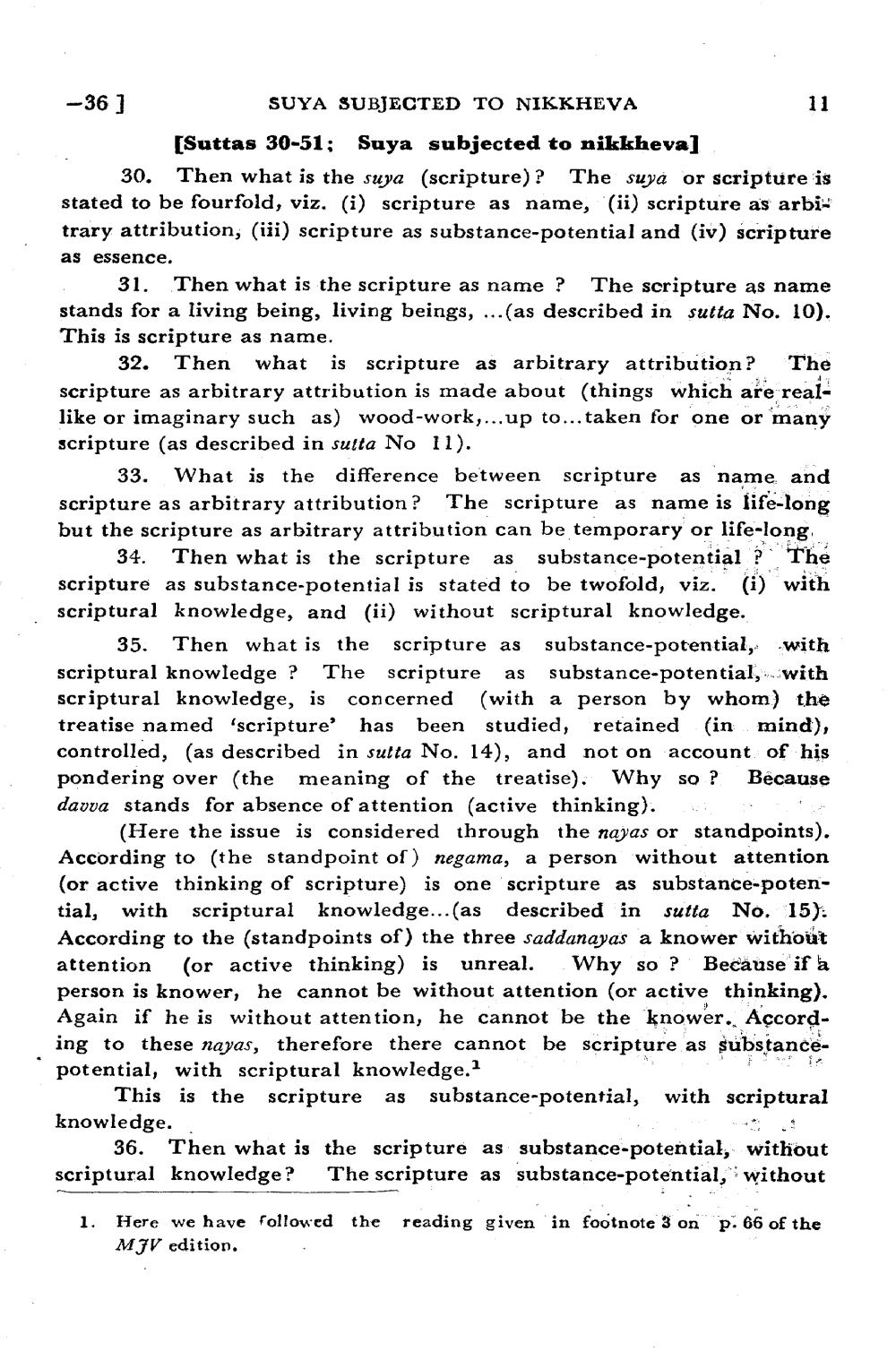________________
eal
-36 ]
SUYA SUBJECTED TO NIKKHEVA [Suttas 30-51; Suya subjected to nikkheva] 30. Then what is the suya (scripture)? The suya or scripture is stated to be fourfold, viz. (i) scripture as name, (ii) scripture as arbitrary attribution, (iii) scripture as substance-potential and (iv) scripture as essence. : 31. Then what is the scripture as name ? The scripture as name stands for a living being, living beings, ...(as described in sutta No. 10). This is scripture as name.
32. Then what is scripture as arbitrary attribution? The scripture as arbitrary attribution is made about things which like or imaginary such as) wood-work,... up to... taken for one or many scripture (as described in sutta No 11).
33. What is the difference between scripture as name and scripture as arbitrary attribution? The scripture as name is life-long but the scripture as arbitrary attribution can be temporary or life-long
34. Then what is the scripture as substance-potential ? The scripture as substance-potential is stated to be twofold, viz. (i) with scriptural knowledge, and (ii) without scriptural knowledge.
35. Then what is the scripture as substance-potential, with scriptural knowledge ? The scripture as substance-potential, with scriptural knowledge, is concerned (with a person by whom) the treatise named 'scripture' has been studied, retained (in mind), controlled, (as described in sutta No. 14), and not on account of his pondering over the meaning of the treatise). Why so ? Because davva stands for absence of attention (active thinking). This
(Here the issue is considered through the nayas or standpoints). According to the standpoint of) negama, a person without attention (or active thinking of scripture) is one scripture as substance-potential, with scriptural knowledge...(as described in sutta No. 15): According to the (standpoints of) the three saddanayas a knower without attention (or active thinking) is unreal. Why so ? Because if la person is knower, he cannot be without attention (or active thinking). Again if he is without attention, he cannot be the knower. According to these nayas, therefore there cannot be scripture as substancepotential, with scriptural knowledge. 2
This is the scripture as substance-potential, with scriptural knowledge.
36. Then what is the scripture as substance-potential, without scriptural knowledge? The scripture as substance-potential, without
1. Here we have followed the reading given in footnote 3 on p. 66 of the
MJV edition.




